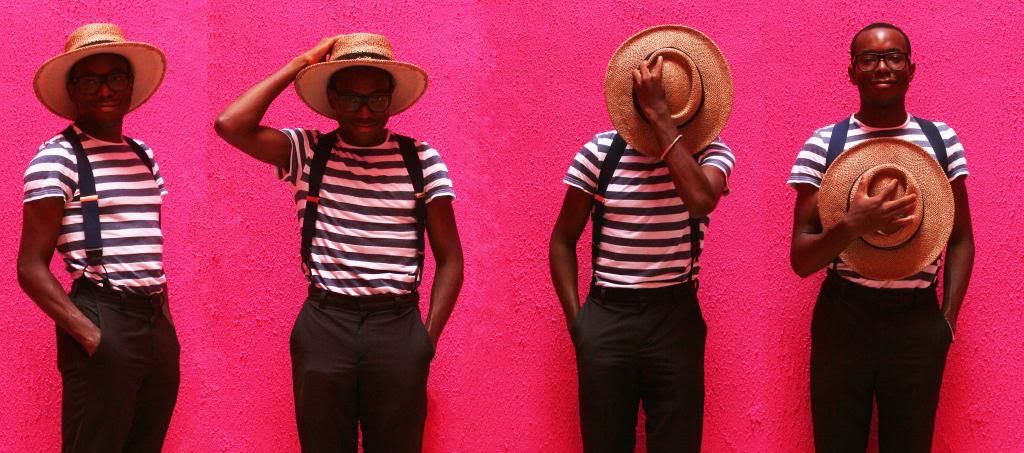When you hear of the film, Queen of Katwe, you think of Lupita Nyong'o. You think of what she wears, and how she carries herself and the lilt that she has to her voice. She sounds musical and exotic in the way that only those who are products of more than one country can be. You almost forget that an extraordinary woman lies at the films heart. A woman that is perhaps even more extraordinary than Lupita. Her name is Phiona Mutesi.
A short documentary about her begins like this.
"My father died of AIDS when I was 3 years old. My mother could no longer afford to pay my school fees. It was very hard to not be in school. I was in the slums alone. I did not have hope, then I discovered chess. My name is Phiona Mutesi. I am the junior chess champion of Africa."
It is a story that has the makings of a legend; that a girl with nothing in the slums of Katwe could make so much out of so little. Even better is that it's an inspirational film that is made for us by us, given reach by the sheer scope of Disney. It stars Lupita as Phiona's mother, Madina Nalwanga as Phiona, David Oyelowo (Selma), and Ntare Mwine (Heroes).
You may not understand what this means so I will explain.
Life wasn't hard growing up. We were more comfortable than many Nigerians or Africans could dream. It was its own form of magic. I did not know then that I had the best of both worlds. The heart of Nigeria with the comforts of the west. You could tell me about London and I'd smile and say that I had been there. You could tell me of snow, and I'd tell you that I had touched it. But I could also tell you of empty fields and tadpoles. I could sing songs of cholera and hustle. The only part of my childhood that I can fault is that nothing was made for me. I was an outsider.
When I watched Cinderella or Angels in the Outfield, I was somehow aware that I was not there, and that those stories were not for me. When I read Enid Blyton, I was a Gollywog, and when I read C.S Lewis, I was not Peter or Edmund or Lucy. I was not a faun or any other fantastical creature that we met in the Chronicles of Narnia. I simply wasn't there. There was no place for being young black and African.
I was however on CNN. I had AIDS in South Africa, I was starving in Somalia, I had Ebola in Congo, and I lived in a slum in Nairobi. My culture was corruption and death, and I looked up to General Sanni Abacha, one of Nigeria's more famous dictators by default.
You may ask about the things we made for us; of Nollywood. But all I remember is Nollywood was even more terrifying than Carrie or Scream. The fear of being turned into a goat, or sacrificed to a spirit for money ran deeper for me than the fear of a serial killer. Nigerian films were watched with one eye shut, for fear that some evil spirit would reach through the television and seize me. And between the polish of the West and the distinctly home video quality of Nollywood there was no competition.
I didn't articulate this until I saw Dope by Richard Famuyiwa. It was a coming of age story with mostly black characters. I was stunned. I wasn't completely in that one either, but it spoke to me more than Sixteen Candles, Mean Girls or The Girl Next Door could ever dream. In that I wasn't a token or a product of Affirmative Action. I was the protagonist.
Now, Disney has made Queen of Katwe. It is one of the rare black stories that isn't destroyed in production, at least not where the cast is concerned. It won't be like Captain America where they insist that Lagos is pronounced Lah-gos and not Leigos. The name of my city obliterated at the hands of Marvel. Now, I've got to be aware that people may not know where I'm from unless I pronounce it like them. The thought that I should ever call Lagos, Lah-gos leaves an odd taste in my mouth.
In Queen of Katwe, there'll be no Blackface or Blacker-face. There'll be no shelving. It will be there front and centre at the Cinema, and when it leaves there'll be DVDs. It is heartening that my younger cousins and my future nephews won't have to rely on Snow White or Mary Poppins for their entertainment needs.
The film will be released on the 23rd of September this year.
Happy Days,
Afam








No comments:
Post a Comment